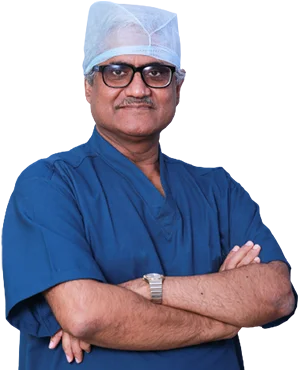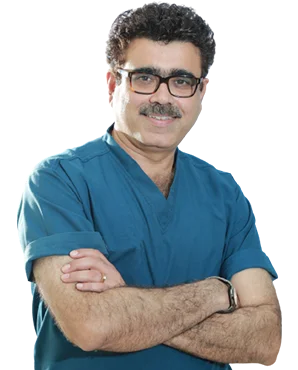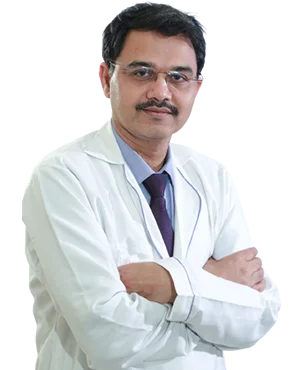Cardiology and Diabetology Department

Interventional Cardiology

Electrophysiology

3 Cath Labs

3D Ablation treatment

Heart Team
Comprehensive Cardiological Care at MJ
The Cardiology Department at MJ Hospital & Heart Institute in Noida is a beacon of hope for heart care. As one of the top heart hospitals in Noida, MJ Hospital is dedicated to providing exceptional cardiac care. Our team of top heart specialists is committed to your heart health and overall well-being.
Our highly qualified and experienced cardiologists are at the forefront, known for their expertise in managing various heart conditions, from complex arrhythmias to intricate interventions for valvular heart diseases. With state-of-the-art technology and a steadfast commitment, MJ Hospital offers hope and healing to patients seeking the finest cardiac care in Noida and the Delhi-NCR region.
Our department’s latest advancements in cardiology and dedication to precise heart surgeries ensure personalized care for every patient. As the most trusted heart specialist hospital in Noida, MJ Hospital brings health, hope, and heart together in perfect harmony.
MJ Hospital is renowned as one of the best diabetes hospitals in India, offering comprehensive screenings and treatments for diabetes and prediabetes. Our specialized diabetology team, composed of expert diabetologists and trained medical staff, provides high-quality care for all stages and types of diabetes
The rise in diabetes cases is largely attributed to modern sedentary lifestyles. Currently, over 62 million Indians suffer from diabetes, with projections suggesting this number could reach 100 million by 2035 without proper treatment. Therefore, it is crucial to:
- Undergo early diabetes screenings.
- Pediatrician and Neonatology
- Regularly assess heart health, as prolonged diabetes increases the risk of cardiovascular disease.
At MJ, we are dedicated to making India healthier and diabetes-free. Our team of experts bridges the gap between patient awareness and the support typically provided by healthcare providers. Our doctors have extensive experience in managing diabetes, earning us the top ranking among diabetes hospitals in India by our patients.
Meet Our Best Cardiology Specialists

Dr. Kunal Sarkar
FRCS (ED), FRCS (Glasg), MNMS

(Prof.) Dr. Rabin Chakraborty
MD (Internal Medicine), DNB (Internal Medicine), MRCP ...

Dr. Vikash Kapoor
MS (Orthopaedics) & Fellow Sports Medicine (Singapore)

(Prof.) Dr. Dilip Kumar Pahari
MD (Internal Medicine), DM, DNB (Nephrology)...

Dr. Pradeepta Kumar Sethy
MD (Medicine), DM (Gastroenterology)

Dr. Dilip Kumar
MD (Internal Medicine), DM (Cardiology), FRCP, FACC...
Recognizing Early Signs of Diabetes
Type 1 diabetes often starts between childhood and the teen years. Parents should be vigilant for symptoms in their children. Type 2 diabetes is more common and should be monitored in individuals who:
Are over 40 years old
Have a family history of diabetes
Lead a sedentary lifestyle
Are overweight
Consume high amounts of sugar and carbohydrates with little fiber and water
Take corticosteroid medications
Experience high stress
Smoke
Symptoms of Diabetes
Excess blood sugar can cause serious health issues. There are two chronic types of diabetes: Type 1 and Type 2, with similar symptoms:
Frequent urination
Constant thirst
Persistent fatigue
Sudden, unexplained weight loss
Blurred vision
Feeling hungry soon after eating
Irritability or mood swings
These symptoms occur because the body does not produce enough insulin, leading to excessive glucose in the blood. Anyone showing early signs of diabetes, especially those with a family history, should get their blood sugar levels checked.
Diabetes Treatment at MJ Hospital
Our specialized team includes certified educators for diabetes counseling and dieticians for customized meal plans. We adopt a multidisciplinary approach to ensure expert care for all diabetic complications, such as:
- Foot care: Screening and management of foot ulcers.
- Eye care: Treatment for diabetic retinopathy, muscular disorders, cataracts, and glaucoma.
- Kidney care: Prevention or delay of diabetic kidney disease.
- Weight management: Nutritional guidance and robotic bariatric surgery.
- Diabetes in children: Expert care from pediatric, nutrition, and allied departments.
Maintaining a healthy, diabetes-friendly diet is essential. This includes healthy carbs from fruits, vegetables, whole grains, and legumes, and low-fat dairy. Avoid sugary foods and drinks, and pair carbs with salads.
Types of Diabetes and Their Treatments
Type 1 Diabetes: An autoimmune disease destroying insulin-producing cells in the pancreas. Treatment primarily involves insulin, including:
- Rapid-acting insulin (works within 15 minutes, lasts 3-4 hours)
- Short-acting insulin (works within 30 minutes, lasts longer than rapid-acting)
- Intermediate-acting insulin (works within 1-2 hours, lasts 12-18 hours)
- Long-acting insulin (takes the longest to work, lasts 24+ hours)
Type 2 Diabetes: The body becomes resistant to insulin, causing blood sugar buildup. Management includes diet, exercise, and medications such as:
- Alpha-glucosidase inhibitors (e.g., acarbose, miglitol)
- DPP-4 inhibitors (e.g., linagliptin, saxagliptin, sitagliptin)
- Biguanides to reduce liver glucose production
- Glucagon-like peptides (e.g., dulaglutide, exenatide, liraglutide)
- Meglitinides (e.g., nateglinide, repaglinide)
- Sulfonylureas (e.g., glyburide, glipizide, glimepiride)
- SGLT2 inhibitors (increase glucose excretion in urine)
- Thiazolidinediones (e.g., pioglitazone, rosiglitazone)
- Gestational Diabetes: Occurs during pregnancy due to insulin-blocking hormones from the placenta. Monitoring blood sugar levels is crucial, and insulin may be needed if diet and exercise are insufficient.

